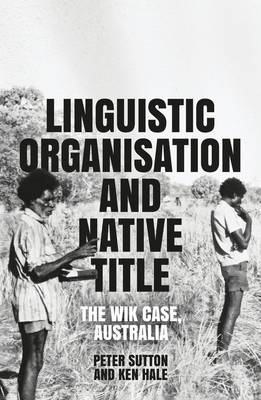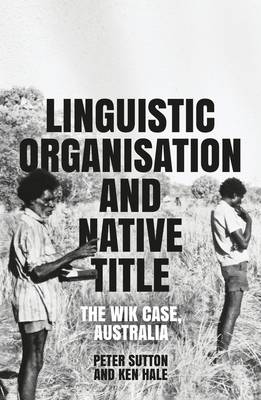
- Afhalen na 1 uur in een winkel met voorraad
- Gratis thuislevering in België vanaf € 30
- Ruim aanbod met 7 miljoen producten
- Afhalen na 1 uur in een winkel met voorraad
- Gratis thuislevering in België vanaf € 30
- Ruim aanbod met 7 miljoen producten
Zoeken
€ 82,95
+ 165 punten
Omschrijving
Classical Aboriginal societies in Australia have commonly been described in terms of social organisation and local organisation. This book presents rich detail on a third and related domain that has not been given the same kind of attention: linguistic organisation. Basing their analyses on fieldwork among the Wik peoples of Cape York Peninsula, north Australia, Peter Sutton and Ken Hale show how cosmology, linguistic variation, language prehistory, clan totemic identities, geopolitics, land use and land ownership created a vibrant linguistic organisation in a classical Aboriginal society. This has been a society long in love with language and languages. Its people have richly imbued the domain of rights and interests in country-the foundations of their native title as recognised in Australian law-with rights and interests in the abundance of languages and dialects given to them at the start of the world.
Specificaties
Betrokkenen
- Auteur(s):
- Uitgeverij:
Inhoud
- Aantal bladzijden:
- 506
- Taal:
- Engels
- Reeks:
Eigenschappen
- Productcode (EAN):
- 9781760464462
- Verschijningsdatum:
- 9/09/2021
- Uitvoering:
- Paperback
- Formaat:
- Trade paperback (VS)
- Afmetingen:
- 153 mm x 234 mm
- Gewicht:
- 929 g

Alleen bij Standaard Boekhandel
+ 165 punten op je klantenkaart van Standaard Boekhandel
Beoordelingen
We publiceren alleen reviews die voldoen aan de voorwaarden voor reviews. Bekijk onze voorwaarden voor reviews.











